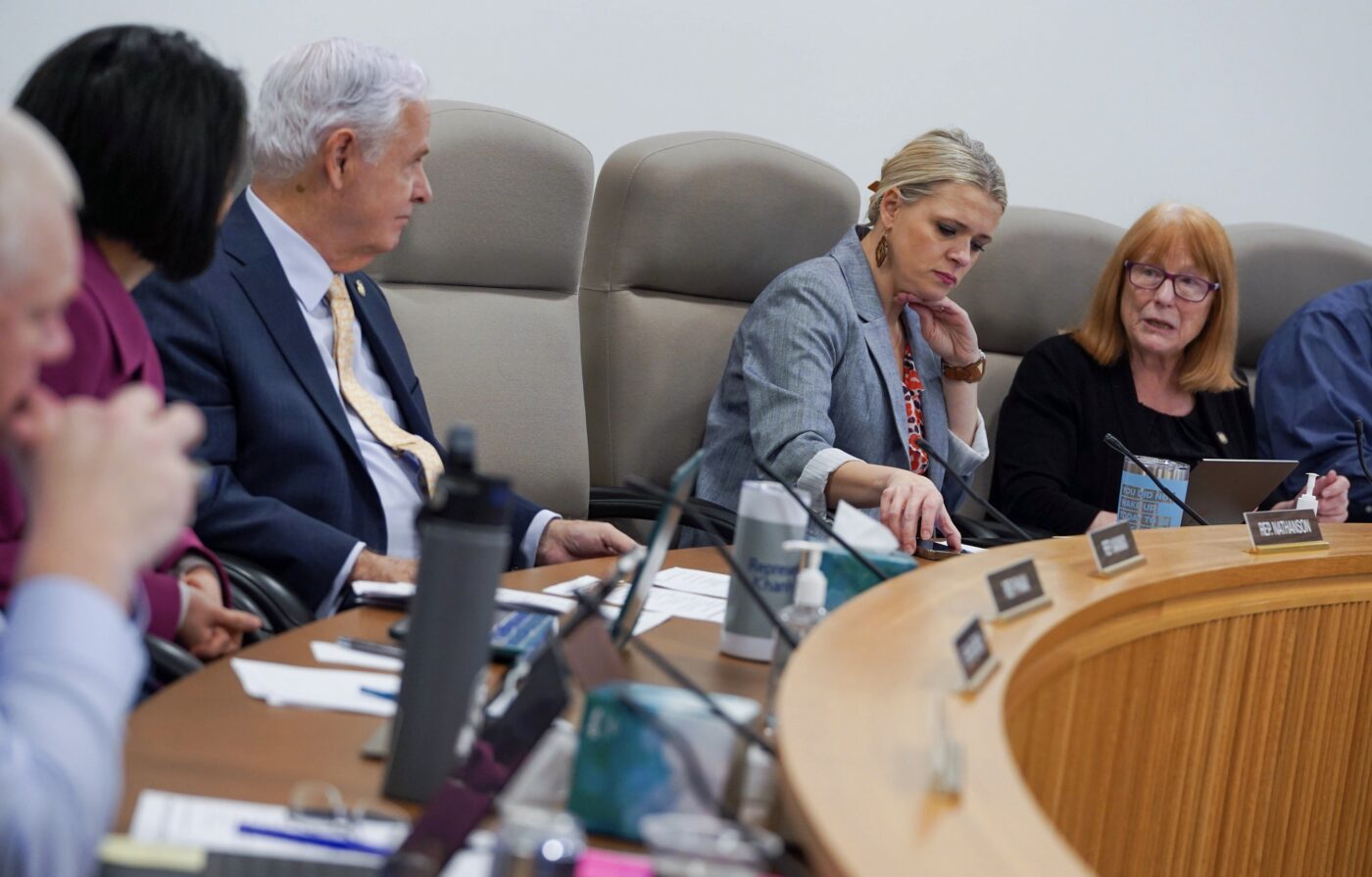
The debate in Salem around a bill that seeks $1 billion for Oregon’s portion of the Interstate Bridge Replacement project was always going to be spicy. But with a major new amendment filed on Tuesday by one of the bill’s sharpest critics and activists primed to show up at its first public hearing later today, things are likely to get even spicier.
As we reported last week, House Rep Khanh Pham feels House Bill 2098 (specifically the -2 or “dash 2” amendments) is bloated. Instead of just a narrow focus on how to raise funds for the $1 billion investment in the IBR, Pham and her supporters feel the bill seeks to remove fiscal safeguards, doesn’t go far enough to protect construction workers, mandates full funding of the I-5 Rose Quarter project, and more.
Now Pham has released a significant set of amendments. Pham’s -3 amendment includes several key changes that would dramatically reshape HB 2098. The amendment was finalized and released on Tuesday, but for some reason, it was not posted to the Oregon Legislative Information System (OLIS) website until a few moments ago. Pham said her office had made several requests to leadership of the JCT to get the amendment posted and that she was “disappointed” it took so long.
Here’s what Pham’s amendment seeks to do.
It codifies a project labor agreement (PLA) she hopes will allow stronger labor standards for contracts awarded through the project. Where the -2 version (and the -4 which was also just released) of the bill was vague and general around labor agreements, Pham’s amendment says directly that, “ensuring labor peace and adequate protections for workers on the Interstate 5 bridge replacement project is in the public interest and that the state must consider the impacts and benefits that result from the project in procurement decisions.” Pham wants the megaproject to be designated a “community benefit project” which would trigger existing law around worker health and apprenticeship programs. (The debate around labor and contracting is something to watch as things move forward. Pham and her supporters want a strong PLA, but many large construction companies don’t.)
Pham also wants to add language that would make the cost cap of $6.3 billion more enforceable. To do that, she wants the project to be done in phases. “To ensure this limit is met, construction may not begin on the northernmost three interchanges and the southernmost two interchanges until the State Treasurers from both Washington and Oregon each make written findings that the bridge and transit components of the Interstate 5 bridge replacement project are substantially complete and the full project is likely to be completed within the $6.3 billion limit,” states the amendment.
The total amount of funding from the General Fund would also come way down if lawmakers adopt Pham’s amendment. Instead of making the $1 billion in revenue from the sale of general obligation bonds, Pham wants to slash that amount to just $250 million. The balance, $750 million, would come from bonds issued against the Highway Fund. This move puts Pham in line with Governor Tina Kotek who has already expressed opposition to spending so much general fund dollars on a transportation project.
Several fiscal guardrails that were in the bill that funded the precursor to this project (the Columbia River Crossing) in 2013 would also be added into the bill with Pham’s amendment. Things like approval of the project from the U.S. Coast Guard, a financing plan approved by the State Treasurer and an investment grade analysis before borrowing could begin — all of which are missing from the current bill — are in the -3.
Pham’s amendment would also make HB 2098 a “clean bill” by removing language about extraneous things like the I-5 Rose Quarter, fees for different types of vehicles and other topics not directly germane to replacing the Interstate Bridge.
Pham is not alone in wanting major changes to HB 2098. At least eight other lawmakers planned to share their concerns in testimony at the JCT meeting tonight. But the leadership of the committee says that won’t be allowed.
Reached for comment a few minutes ago, Pham said, “This is the largest infrastructure project in the state’s history. We need to have a robust dialogue — amongst both the public and legislators. I’m disappointed that a few hours before the hearing, we were told that the 8 legislators who registered to testify, including those legislators whose districts border and are directly impacted by the I-5 Bridge, will not be allowed to testify.”
The back-and-forth between Pham’s office and JCT Co-Chair House Rep. Susan McLain underscores an ongoing unease between the two lawmakers that is readily apparent at many meetings. On several occasions this session I’ve noticed Rep. McLain interject whenever Rep. Pham asks a particularly detailed or potentially uncomfortable question of ODOT staff and leadership. Often McLain will answer the question herself, in what feels like covering for ODOT leadership. It’s no mystery that these two lawmakers are vying for power and influence over transportation policy and that their positions are very far apart.
During a transportation lobby day on April 13th, Rep. Pham stood for a photo, arm-in-arm with fists thrust into the air, with 17-year-old climate activist Adah Crandall. Then a few hours later, Crandall confronted McLain in the hallway after a meeting and urged her to do more to fight climate change.
McLain is a Democrat, but she is to the right of Pham when it comes to transportation policy. This fight over HB 2098 has defined that contrast more than any other issue.
Meanwhile, No More Freeways has been working to organize support for a “right sized” bridge. So far there are 128 people who’ve shared written testimony in advance of tonight’s hearing — 6 of them are neutral, 29 support the bill, and 91 oppose it.


